People You Should Know
 John Locke
John Locke
John Locke (1632–1704) was a 17th-century English philosopher, often regarded as the “father of liberalism.” His writings on political and economic freedom have influenced a number of other writings, including the US Constitution. In Two Treatises of Government, Locke asserts that a limited constitutional government that recognizes a man’s natural rights is essential to creating a civilized society.
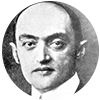
Joseph Schumpeter
Joseph Schumpeter (1883–1950) was an influential Austrian political economist known for coining the term “creative destruction” to describe how capitalism operates. Despite his strong preference for capitalism, Schumpeter recognized weaknesses in the capitalist system and believed these weaknesses could lead to socialism. In his book Capitalism, Socialism, and Democracy, Schumpeter argued that capitalism’s propensity for creative destruction, its tendency towards oligopoly, and the vested interest in social unrest would lead to its eventual demise.
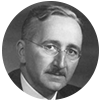 Friedrich von Hayek
Friedrich von Hayek
Friedrich von Hayek (1899–1992) was a 20th-century Austrian-British economist and philosopher known for his strong belief in and defense of economic freedom (classical liberalism). In his book The Road to Serfdom, Hayek warns readers that government command of and control over the economy is the ideal of socialism and undercuts freedom. Over his long career, Hayek received many awards for his work, including the Nobel Prize in Economic Sciences and the Presidential Medal of Freedom.
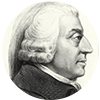 Adam Smith
Adam Smith
Adam Smith (1723–1790) was an 18th-century economist and philosopher who is best known for laying the foundation for classical free-market economic theory. Smith believed that rational self-interest and competition would lead to economic prosperity.
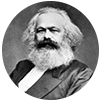 Karl Marx
Karl Marx
Karl Marx (1818–1883) was a 19th-century German philosopher, economist, and political theorist best known for coauthoring The Communist Manifesto with Friedrich Engels. Marx’s theories on society, economics, and politics—referred to as Marxism—highlighted class struggles. He called for a revolution against capitalism in favor of a new economic system, called socialism. Marx believed that the working class (known as the proletariat) could achieve socioeconomic freedom by abolishing private property and placing total governmental control over the economy.
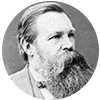 Friedrich Engels
Friedrich Engels
Fredrich Engels (1820-1895) was a 19th-century German philosopher best known for coauthoring The Communist Manifesto with Karl Marx. Engels’s family owned a number of textile factories, which allowed him to financially support Marx while he conducted research for various writings. Though Engels is best known for his collaboration with Marx, he also authored a number of his own works, including Socialism: Utopian and Scientific and The Condition of the Working Class in England.
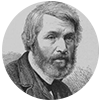 Thomas Carlyle
Thomas Carlyle
Thomas Carlyle (1795–1881) was a 19th-century British philosopher who wrote about the “cash nexus.” Carlyle believed that a fatal flaw of industrial society was its tendency to minimize relationships to monetary transactions. Karl Marx and Joseph Engel famously stole the phrase “cash nexus” to use in The Communist Manifesto.
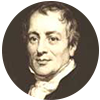 David Ricardo
David Ricardo
David Ricardo (1772–1823) was an influential British economist who supported free trade. He is known for the theory of comparative advantage, which explains how a country stands to benefit from international trade even if that country is a more efficient producer of every single good than all other countries. His work put him mostly at odds with Marxism. However, his labor theory of value, which suggests that the value of a good is relational to the amount of labor that went into it, was used as one of the foundations for Marxist theory.
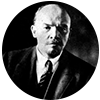 Vladimir Lenin
Vladimir Lenin
Vladimir Lenin (1870–1924) was a Russian politician and political theorist. Lenin, a staunch Marxist, founded the Russian Communist Party and was the first leader of the Soviet Union. Although he was successful in nationalizing banks and other industries, his leadership also ushered in a period of political repression and mass killings among critics of the Soviet government.
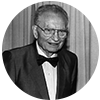 Paul Samuelson
Paul Samuelson
Paul Samuelson (1915–2009) was a Nobel Prize winning American economist. Samuelson, a student of Joseph Schumpeter, believed that the Soviet Union’s economy was an example of a thriving and successful socialist economy. He falsely predicted for nearly 20 years that the gross national product of the Soviet Union would overtake that of the United States.
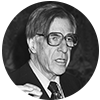 John Kenneth Galbraith
John Kenneth Galbraith
John Kenneth Galbraith (1908–2006) was an economist known for his advocacy of a “new socialism.” He believed that nationalizing “unduly weak industries and unduly strong ones” would better reflect the public interest. For years, Galbraith believed in the eventual success of the Soviet economy. In addressing the Soviet economy’s success, he said, “in contrast with Western industrial economies, it makes full use of its manpower.”
